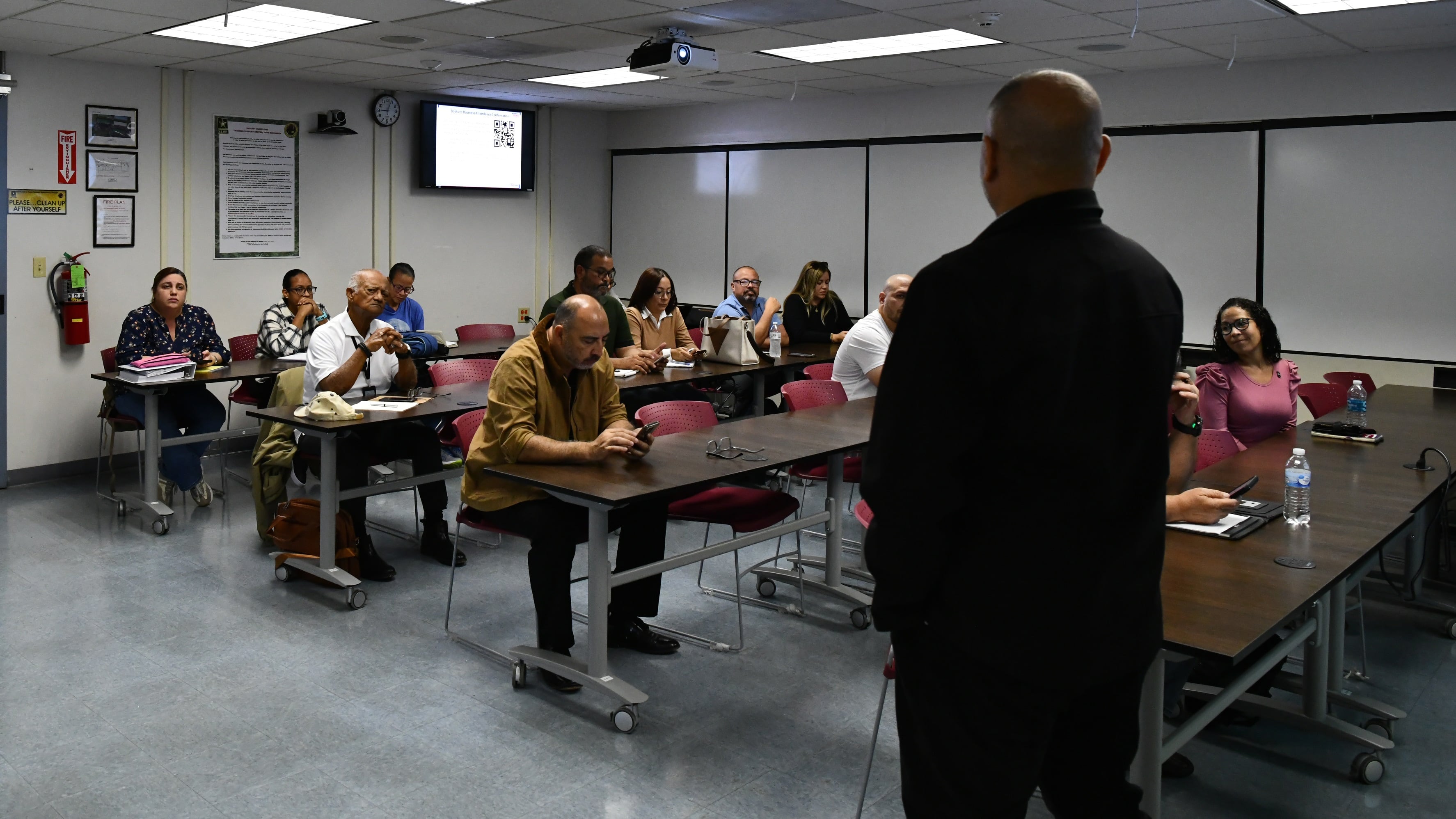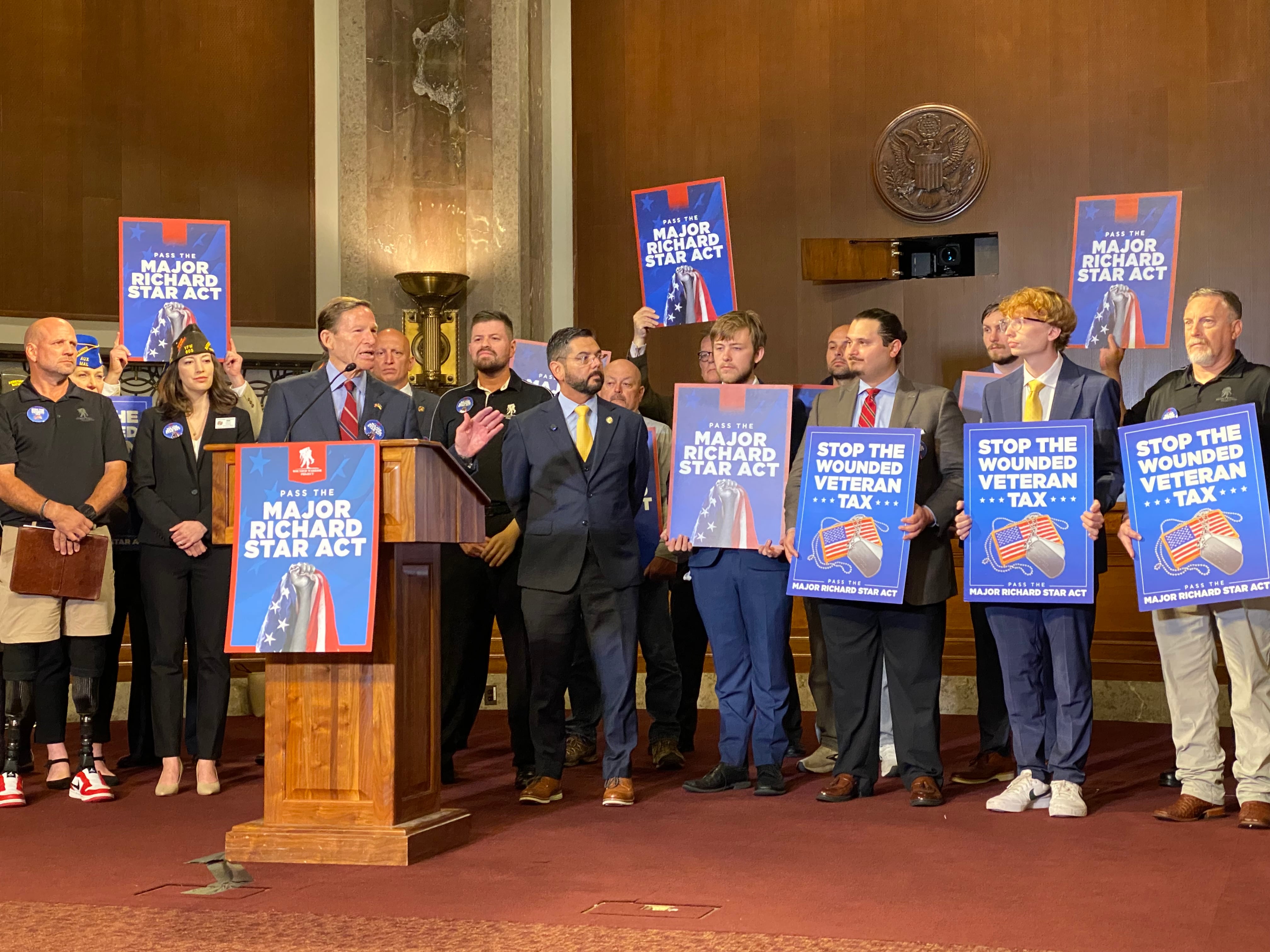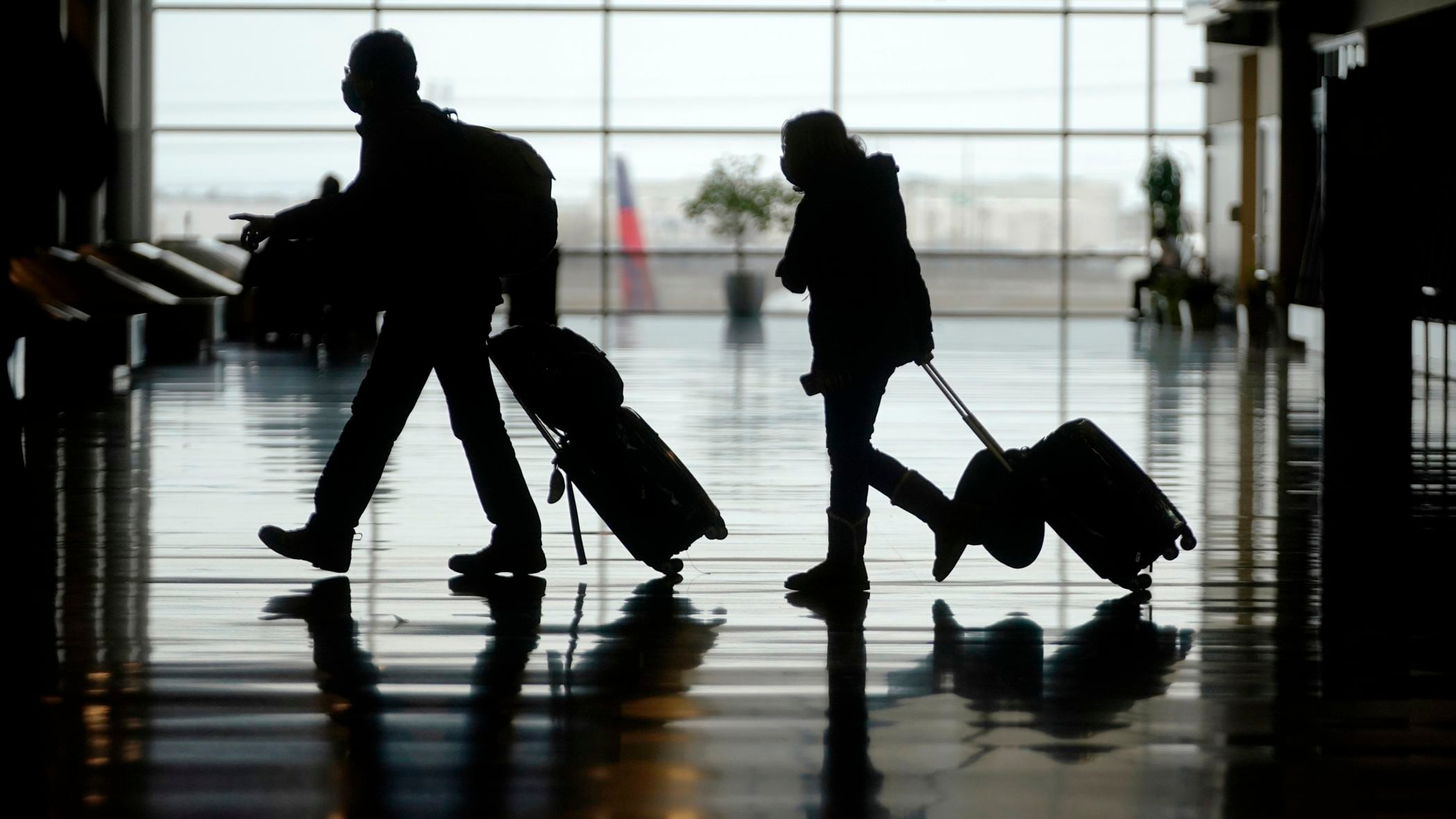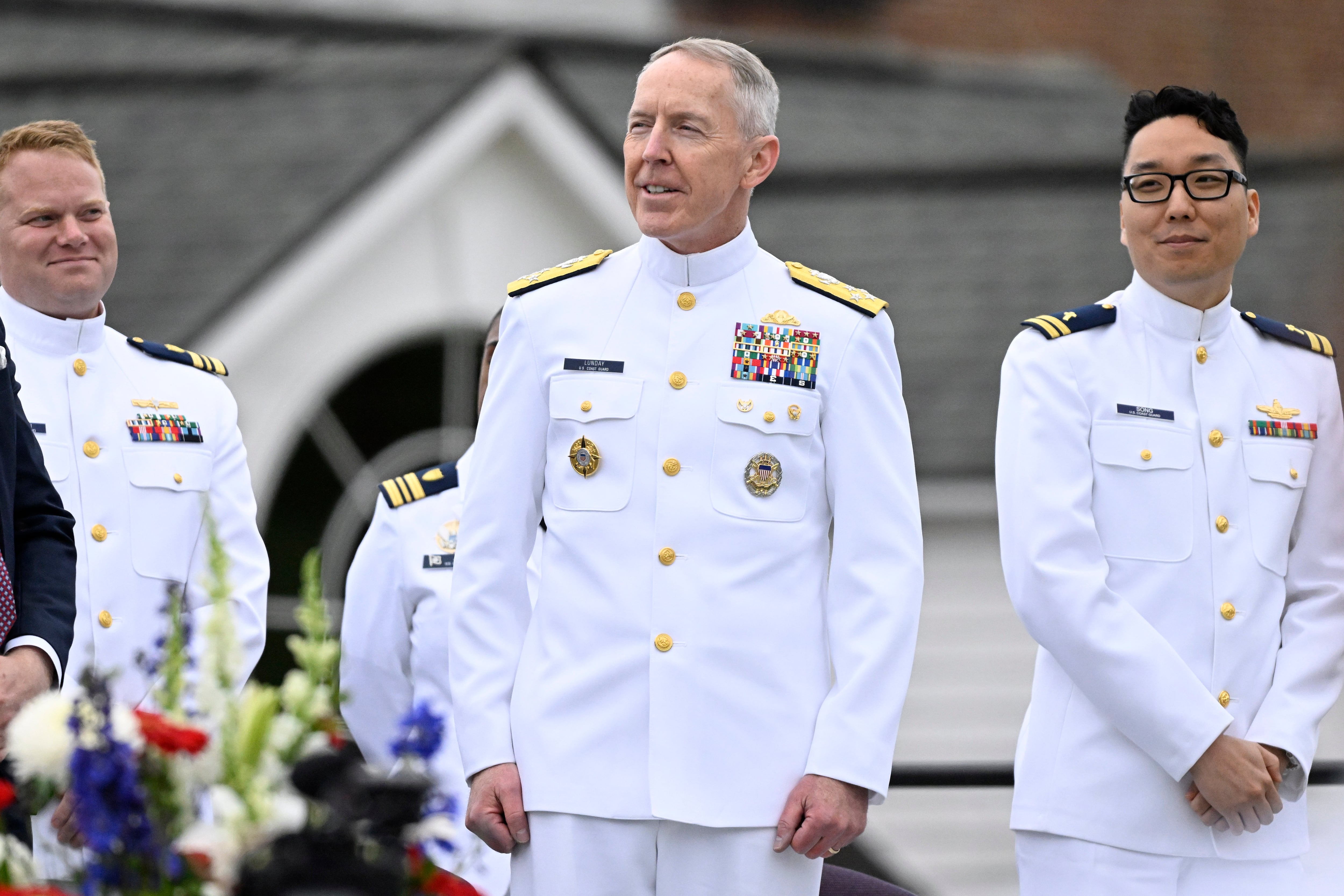A military wife wants to get a message to families in military housing: The windows may not be safe for your children.
The mom — who asked not to be identified because of pressure from the installation and concern for her husband’s career — is speaking from experience. Her own child was injured when she fell about 15 feet from an upstairs window.
She is not alone: Fifteen children fell out of windows in privatized housing between 2017 and 2021, the latest year for which the Defense Department had figures. At least three more have fallen this year. Fortunately, none were killed in the past five years, but some suffered serious injuries. In 2011, however, a child was killed in a fall.
Although her own child has recovered, the mother doesn’t want any more families to go through the trauma and horror of such incidents, she said.
She is asking parents to check whether their child could easily push out a screen and fall — as her child did — and if so, to ask their military housing company for devices that can prevent such falls. She’s also been trying to get the privatized housing company to install window guards.
“Who thinks to check windows for safety?” she said. “You assume in military housing that they would take something like children falling out of windows very seriously.”
Other military families have faced intimidation when they wanted to speak publicly about their concerns with children falling from windows, said Kate Needham, a co-founder and executive director of Armed Forces Housing Advocates, a nonprofit organization dedicated to addressing “the substandard housing conditions” to which military families are exposed.
Needham applauds housing companies that have taken action to install window safety devices for their military families. But the policies are not the same across the board. Some housing companies are resisting requests from families to install window guards, she said. Some are charging families for the devices. “And some families are being charged when they move out for damaging the house with the installed window guards … even if the housing company installs them,” she said.
“At a minimum we’re asking that they inform families of the risk and that they give families with small children the opportunity to ask for window safety mechanisms to be installed and provided at no cost,” Needham said.
Another challenge, she said, “is that families have to know these devices are available and that they can ask for them.”
None of the falls occurred in government-owned housing. And Needham said there hasn’t been an analysis to determine whether such incidents occur more frequently in the military community than in the civilian world.
Armed Forces Housing Advocates has paid for window safety devices for some families, Needham said. The window guards her organization supports generally vary in price from $70 to $140. “You don’t need them on every window, or in every house,” she said.
Needham contends it’s not a priority for the Defense Department. She said she heard a senior defense official say in a recent briefing that the falls were due to lack of supervision, which infuriated her.
“It’s easy to blame the parent, but when the police and Child Protective Services investigate and say it’s clearly not the parents’ fault, they have to recognize they’ve got to stop turning their backs,” she said.
A provision in the Fiscal 2018 National Defense Authorization Act requires military housing owners to equip windows that are more than six feet from the ground on the exterior, with a bottom sill that is 42 inches or less from the floor, with fall prevention devices.
The law requires the devices to be installed in military family housing units where contracts for construction or whole-house renovation are entered into after Oct. 1, 2019. The law also requires DoD to set up a separate program to retrofit current windows with fall prevention devices, and authorizes funding to provide grants to private entities to retrofit or replace existing windows.
“Evan’s Law,” as it is known, resulted from the efforts of the parents of 4-year-old Evan English, who died in 2011 after falling from a window at Aliamanu Military Housing in Hawaii.
The fall prevention device is a window screen or guard that meets the standards of ATSM International, previously known as the American Society for Testing and Materials.
Some of this work is under way in current privatized housing projects as well as government-owned housing. The law also required DoD to provide information about the number of children who fell from windows in military housing, both government-owned and privatized, starting with calendar year 2017.
| Falls by children from windows in privatized housing * | Date | Fatality |
|---|---|---|
| San Diego Naval Air Station, California | Feb. 1, 2017 | No |
| Holloman Air Force Base, New Mexico | Nov. 11, 2017 | No |
| Buckley Air Force Base, Colorado | Oct. 29, 2018 | No |
| Fort Hood, Texas | Jan. 23, 2019 | No |
| Fort Bragg, North Carolina | Nov. 27, 2019 | No |
| Naval Base San Diego, California | Feb. 4, 2020 | No |
| Naval Base San Diego, California | April 27, 2020 | No |
| Naval Base San Diego, California | June 22, 2020 | No |
| Naval Base San Diego, California | July 25, 2020 | No |
| Naval Base Ventura County, California | May 13, 2020 | No |
| Naval Base Ventura County, California | Aug. 20, 2020 | No |
| Joint Base Pearl Harbor-Hickam, Hawaii | Aug. 20, 2020 | No |
| Naval Base Coronado, California | Feb. 1, 2021 | No |
| Naval Station San Diego, California | July 28, 2021 | No |
| Fort Huachuca, Arizona | May 21, 2021 | No |
| * There were no falls reported in government-owned military housing. | ||
| Source: Department of Defense |
What the housing companies are doing
“We are unsure of how many [privatized housing companies] are pursuing the use of window [safety devices]. However, we have heard that some are providing them when demanded by the family,” said Jim Graham, executive director of the nonprofit National Association for Child Window Safety.
“There is indecisiveness in the language regarding whether or not it applies to all windows or just new construction and complete renovation,” he said.
Information was not available from Department of Defense officials about their position on whether privatized housing companies are required to retrofit existing windows with window safety devices, or whether DoD has provided any grant money to any company or organization to install the devices.
Graham praised one privatized housing company: Lendlease Communities, which made the commitment to install window safety screens before the law required it. Evan English died after falling from a window in privatized housing owned by Lendlease.
Lendlease’s efforts began when its chief executive officer, Denis Hickey, “challenged us to figure out a way to keep children safe in our homes from these falls that happen. It’s horrible,” said Phillip Carpenter, chief operating officer of Lendlease.
The National Association for Child Window Safety gave Lendlease an award for its efforts, Graham said. “It was made clear that their No. 1 priority was child window safety.”
Lendlease expects to finish installing window safety screens in all 156,000 upper-story windows in its 40,000 military houses by 2026. The cost for those is estimated to be about $12 million. To date, company officials are about one-third of the way to their goal of fixing every window, Carpenter said. “In Hawaii, where we considered was the biggest risk, we’ve finished 67% of those 7,500 homes.”
There is no charge to families. Some families have requested the safety screens earlier, and the company has provided them. They’re exploring ways to speed up the retrofitting, he said, but the challenge is in the many different window sizes of the different legacy homes turned over by the services. “We would like to see more progress, but it takes time to do the sizing and the preplanning,” he said.
They initially tried using limiting devices on windows, which allows the window to open only a limited distance. However, installation fire departments pushed back on these devices because they block escape in the event of a fire. So, Lendlease’s innovation group and the environmental health and safety team worked with industry to see what was available, and teamed up with a company to develop a strong screen, Carpenter said.
It’s a heavy screen that can be pushed out with appropriate pressure from an adult, allowing escape in the event of an emergency.
Here are the responses from the four other largest privatized housing companies to Military Times’ questions about their policies regarding child window safety devices:
Balfour Beatty Communities: Military families can request the devices installed to retrofit the windows in their residence, but the families will pay for them. “We can procure them at a reduced price for the resident and assist with installation,” officials said in a statement. “Given that there is no formal DoD program yet in place, residents pay for window safety devices that are not part of a whole home renovation or new build where the windows purchased would have the safety guards installed.”
The company is in compliance with the law requiring window fall prevention devices for all housing units that are constructed or completely renovated after Oct. 1, 2019, officials said. “We understand the service branches are in the process of formalizing the program” to retrofit all current privatized housing homes with fall prevention devices, they stated.
In the meantime, they said, they’re “taking steps to improve window safety in existing homes.”
Corvias: “To the extent that a family has specific needs that may require a modification of a current home, including to install fall prevention devices, we would appreciate the opportunity to work with our residents to do so,” officials said in a statement.
“It is Corvias policy to ensure that any new or substantially renovated homes at Fort Bragg meet the [window safety] standards. In December 2021 Congress directed the Department of Defense to develop a plan with respect to implementing those requirements. We continue to work closely with our Army partners to ensure the health and wellbeing of our residents and anticipate supporting implementation of that plan once it has been adopted.” Corvias owns and operates 22,000 homes at seven Army installations in six states.
Hunt Military Communities: Specific answers about window safety devices were not provided. The company “is committed to meeting or exceeding all local safety standards and regulations across the diverse jurisdictions and communities we serve,” officials stated. “We are in constant communication with our partners at the Department of Defense to help ensure the safety and comfort of our residents across all our Navy, Air Force, Marine Corps, and Army installations. We are fully compliant with all Department of Defense regulations in this matter and together with our partners, regularly assess opportunities to upgrade our housing facilities based on the latest mandates, programs and available resources.”
Information was not available about whether they are retrofitting existing houses with window safety devices; whether families can request the devices; or whether families are charged any fees for the devices.
Liberty Military Housing: “In addition to ensuring window opening control devices are installed in homes undergoing major renovation or new construction, as outlined by the DoD, LMH is retrofitting over 60,000 windows across our entire portfolio”, officials said in a statement. “In addition to installing these devices, and well before Evan’s Law was signed into law, LMH began working with our government partner back in 2011 to implement window safety educational programs to raise awareness for our residents. We placed and maintain window safety stickers in each of our homes.”
These stickers, used by some other housing companies, warn parents of the risk of falls from the windows. There are a few LMH units remaining to be retrofitted that officials expect to complete by the end of the summer; residents can request window safety devices, and they are not charged, nor are they charged a fee when they move out.
Needham said she’s encouraged by the actions that some companies have taken, including a smaller operator in Alaska, Aurora Military Housing, at Joint Base Elmendorf-Richardson. The company is offering to install some devices for families who request them, Needham said, and is educating the neighborhood about the importance of window safety. That follows incidents this year of three children who were injured in separate falls from windows in the Aurora housing.
Needham has personally experienced this trauma: In 2020, her 14-month-old son Robbie fell 15 feet from a window in their military housing in San Diego and suffered a traumatic brain injury. Now, she said, “he’s doing okay,” and his pediatric team is monitoring him. They won’t know if there’s a long-term impact on his cognitive development until he starts school, she said. “He’s very lucky, considering how far he fell and how hard he fell.”
Two months after her son fell, a neighbor’s son fell 15 feet from a window and suffered skull fractures.
“Watching my own child get a TBI, and then watching my neighbor’s child’s brain swell out of his skull, kind of sent me over the edge,” she said.
“I decided this is my life’s work.”
Karen has covered military families, quality of life and consumer issues for Military Times for more than 30 years, and is co-author of a chapter on media coverage of military families in the book "A Battle Plan for Supporting Military Families." She previously worked for newspapers in Guam, Norfolk, Jacksonville, Fla., and Athens, Ga.





